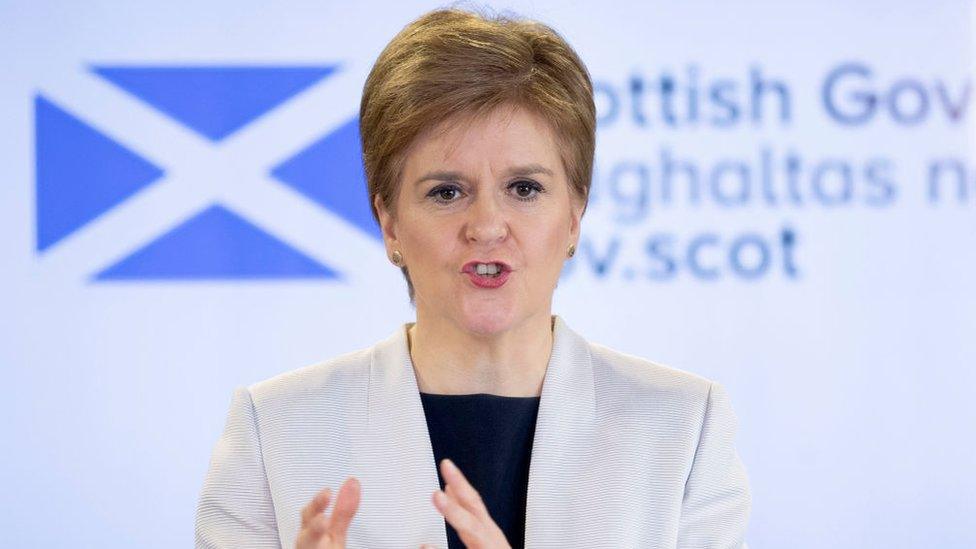UK Covid Inquiry: Yousaf handing over 'reams' of WhatsApps
- Published
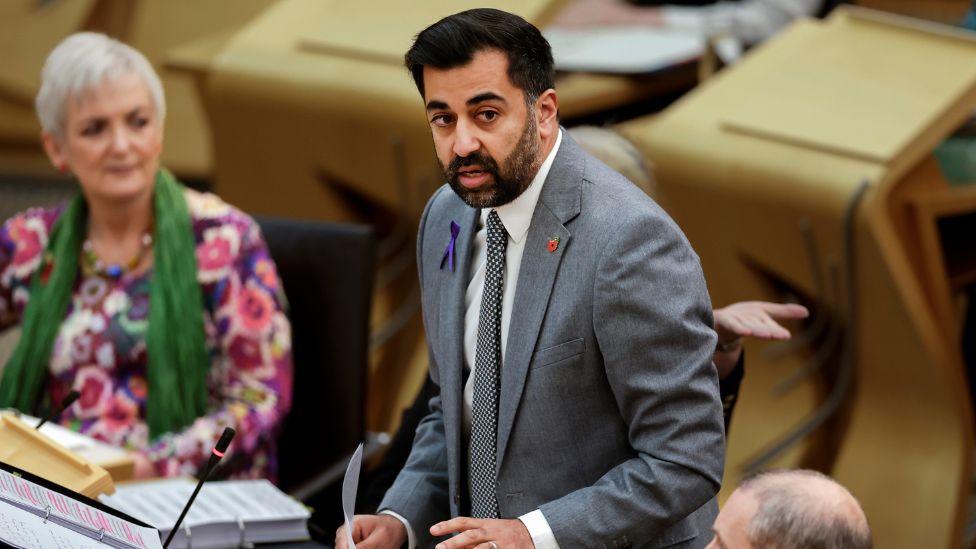
Humza Yousaf has vowed to hand over all of his messages from during the pandemic
Humza Yousaf has said he is handing over "reams" of his personal WhatsApp messages to the UK Covid Inquiry.
The first minister also defended his predecessor Nicola Sturgeon, despite refusing to be drawn on whether she had deleted files.
It came as the Scottish government said it submitted more than 14,000 mainly WhatsApp messages to the inquiry.
Ministers were accused of a cover-up, but Wellbeing Economy Secretary Neil Gray said they had "nothing to hide".
Mr Yousaf, who has denied deleting any messages, said: "I will be handing over reams of WhatsApp messages unredacted.
"It will be for the inquiry to decide whether they are relevant or not."
Responding to reports that Ms Sturgeon had manually erased some of her messages, the first minister insisted she had been "open and accountable".
He stressed that ministers did not "routinely" make decisions over WhatsApp during the pandemic but that the Scottish government was complying with a request to hand over "corporate" files.
"We are prepared to hand over all of the WhatsApps that we have retained that we believe to be relevant," Mr Yousaf said.
The Scottish government announced on Monday afternoon that "all material that the Scottish government holds has now been submitted" to the UK inquiry.
A spokesperson stressed the government did not "intend to provide a running commentary on the work of either inquiry in order to ensure the Inquiries can take forward their necessary work without undue speculation".
Mr Gray said the Scottish government was co-operating with both the Scottish and UK inquires.
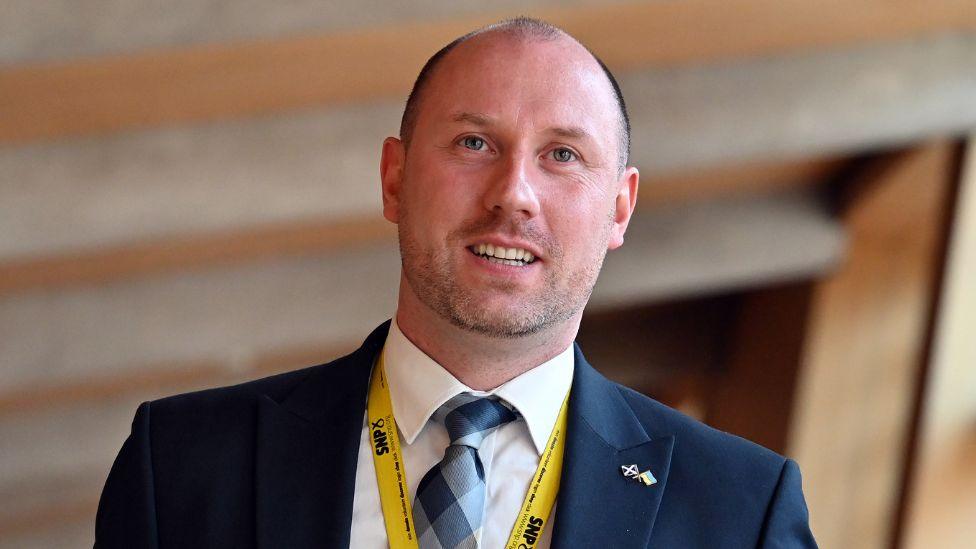
Economy and Fair Work Secretary Neil Gray says the government will fully comply with the inquiries
"We've got nothing to hide," he told BBC Radio's Good Morning Scotland programme.
"We're fully confident in the information we're handing over.
"It will be up to both the inquiries to disseminate the information as they see fit."
The Scottish government said it was asked to hand over WhatsApp messages related to the pandemic in September.
Inquiry fears
The UK inquiry has asked to see the WhatsApp messages of 70 officials, medical chiefs, ministers and former ministers, and identified 137 messaging groups that could contain relevant information.
However, the inquiry's counsel, Jamie Dawson KC, said "very few" of the messages it was interested in appeared to have been retained.
The Scottish government subsequently announced it would release 14,000 electronic messages by Monday.
It later emerged that this "corporate" submission would not include minister-to-minister conversations.
Instead, it is restricted to conversations of three or more people involving at least one civil servant.
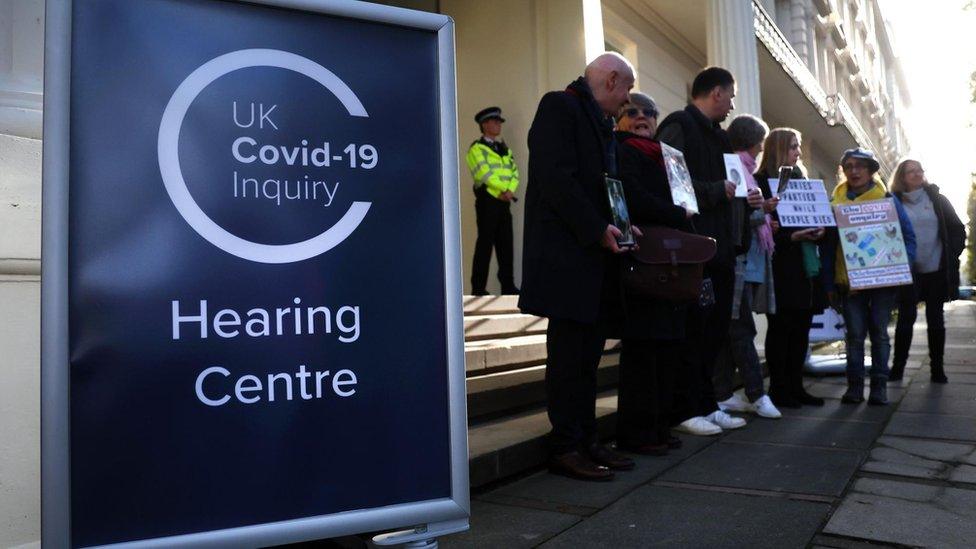
Mr Gray said that under Scottish government policy, decisions made via messaging or over the telephone are transcribed and submitted into the records system.
"The important part that is retained by the government is the decision itself and the context around which it was taken," he told Good Morning Scotland.
"That is the information the government itself will be passing on and ensuring is available to the inquiries."
The Sunday Mail previously reported that the first minister had told the inquiry he did not have all of his messages.
The Scottish Mail on Sunday has also reported that Ms Sturgeon's former senior aid, Liz Lloyd, submitted her WhatsApp files to the UK inquiry in July, two months before the Scottish government said it was asked to hand over WhatsApp evidence.
Mr Gray said Ms Lloyd's files would have been subject to an "individual" request, separate to the one the government received in September.
The Scottish government was issued a formal legal order, under section 21 of the Inquiries Act 2005, to release WhatsApp material last week.
Ministers said this was necessary due to data privacy concerns.

Humza Yousaf has vowed to hand over all of his messages from during the pandemic
Senior members of the Scottish government's leadership team from the pandemic - including Ms Sturgeon and ex-deputy first minister John Swinney - have been accused of wiping messages.
Both have refused to deny removing messages and said they would comply with the inquiries.
Former finance secretary Kate Forbes said she retained all relevant correspondence relating to the pandemic and had shared it with the Covid inquiry.
Health Secretary Michael Matheson - who served as Net Zero, Energy and Transport secretary during the pandemic - told BBC Scotland News he kept his WhatsApps too.
National clinical director Jason Leitch has been accused of deleting messages every day during the pandemic, while chief medical officer Prof Sir Gregor Smith is alleged to have used an auto-delete function on WhatsApp messages.
Both were approached for comment.


You have 14,000 new messages - that's what the UK Covid Inquiry will hear today when the Scottish government hands over piles of WhatsApps.
But this is unlikely to draw a complete line under the questions that Humza Yousaf has been facing.
Key decision makers from the pandemic - including Nicola Sturgeon - have refused to say whether or not they deleted messages from the time.
And the 14,000 exchanges we're talking about here are only from groups which civil servants were members of.
We're not getting anything from one-to-one conversations. Or any groups that only featured politicians (if such groups were used).
The 14,000 shouldn't be all that the inquiry gets. Other key decision makers from the time have been approached directly to share what they have.
Ministers insist decisions were not made on WhatsApp, and anything consequential from the app would have been transferred to a central records keeping system.
But what about the context around decisions? And what about instances where the decision was to do nothing?
That is something the UK Covid Inquiry would like to judge for itself. But it may be the case that it won't get everything it wants.

The Scottish inquiry issued a "do not destroy" order at the beginning of August 2022, meaning it could be an offence for witnesses to have deleted Covid-related messages after that date.
In June this year, Mr Yousaf told MSPs that all requested material would "absolutely" be handed over to the Covid inquiries in full.
The Scottish government's mobile messaging policy, which was introduced in November 2021, suggests that conversations relating to government business should be deleted at least once a month.
However, it also makes clear that before anything is wiped "salient points of any business discussions and/or decisions" should be transcribed and saved in the official record system.
'Building a bonfire'
The Scottish government's records management policy, introduced in February 2021, says these records should be kept as long as necessary to fulfil the Scottish government's business and legal obligations.
Scottish Tory leader Douglas Ross has likened the policy to "building a bonfire to destroy the evidence".
He claimed it was "absolutely clear that the SNP brought in an auto-delete policy" after Ms Sturgeon had confirmed there would be a Scottish Covid inquiry in August 2021 to allow ministers to "cherry-pick" information that could be submitted.
Scottish Labour leader Anas Sarwar has accused the government of abdicating responsibility after Mr Yousaf said confidentiality rules prevented him from confirming which ministers had deleted evidence.
- Published2 November 2023
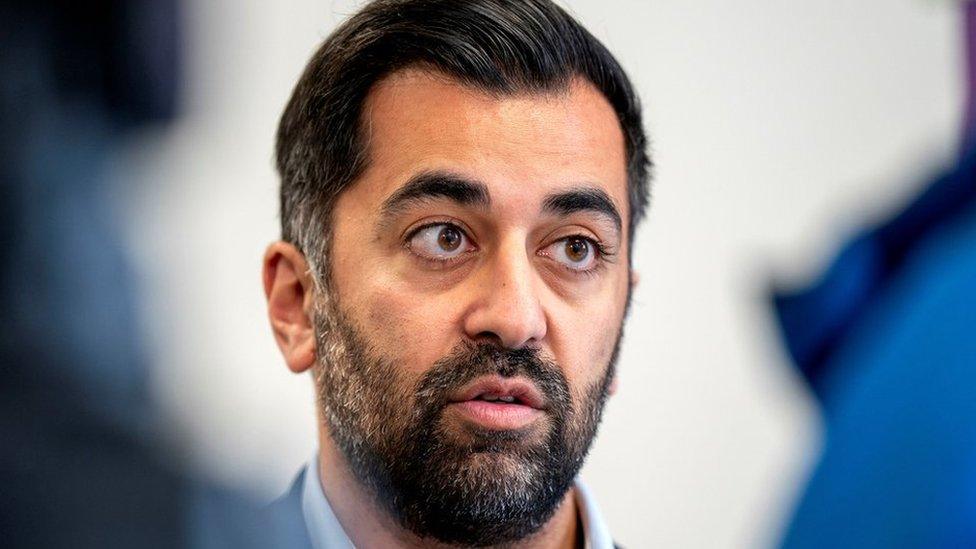
- Published31 October 2023
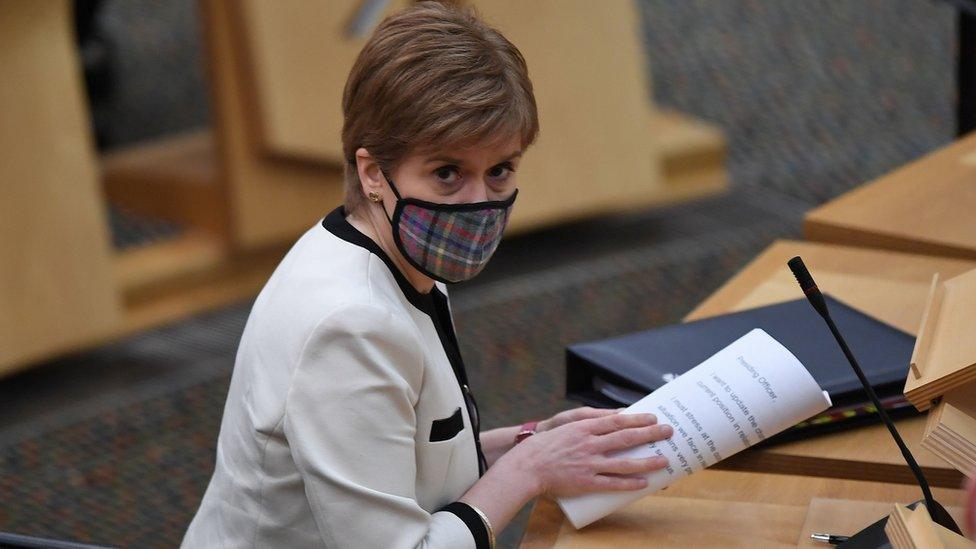
- Published30 October 2023
